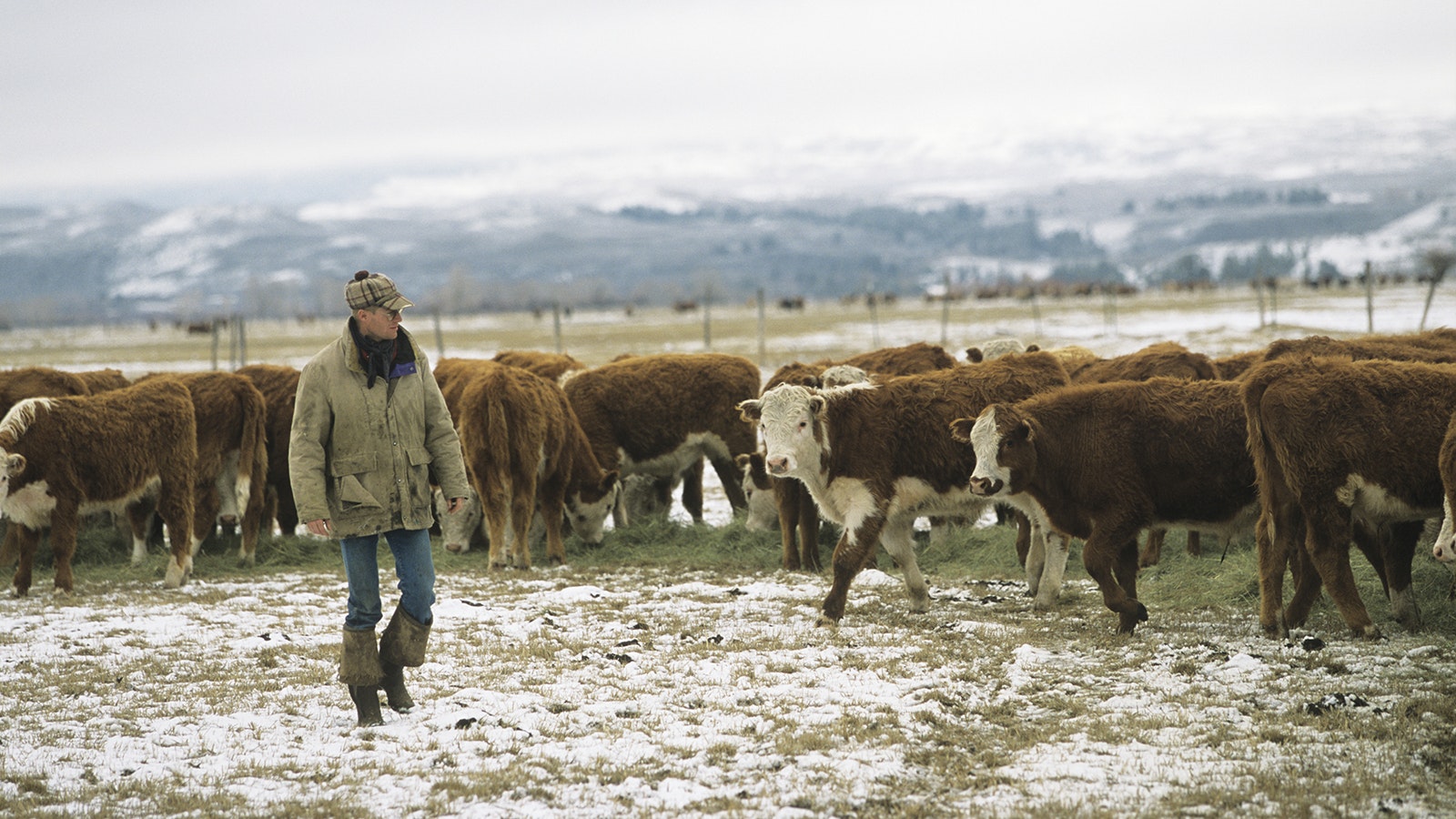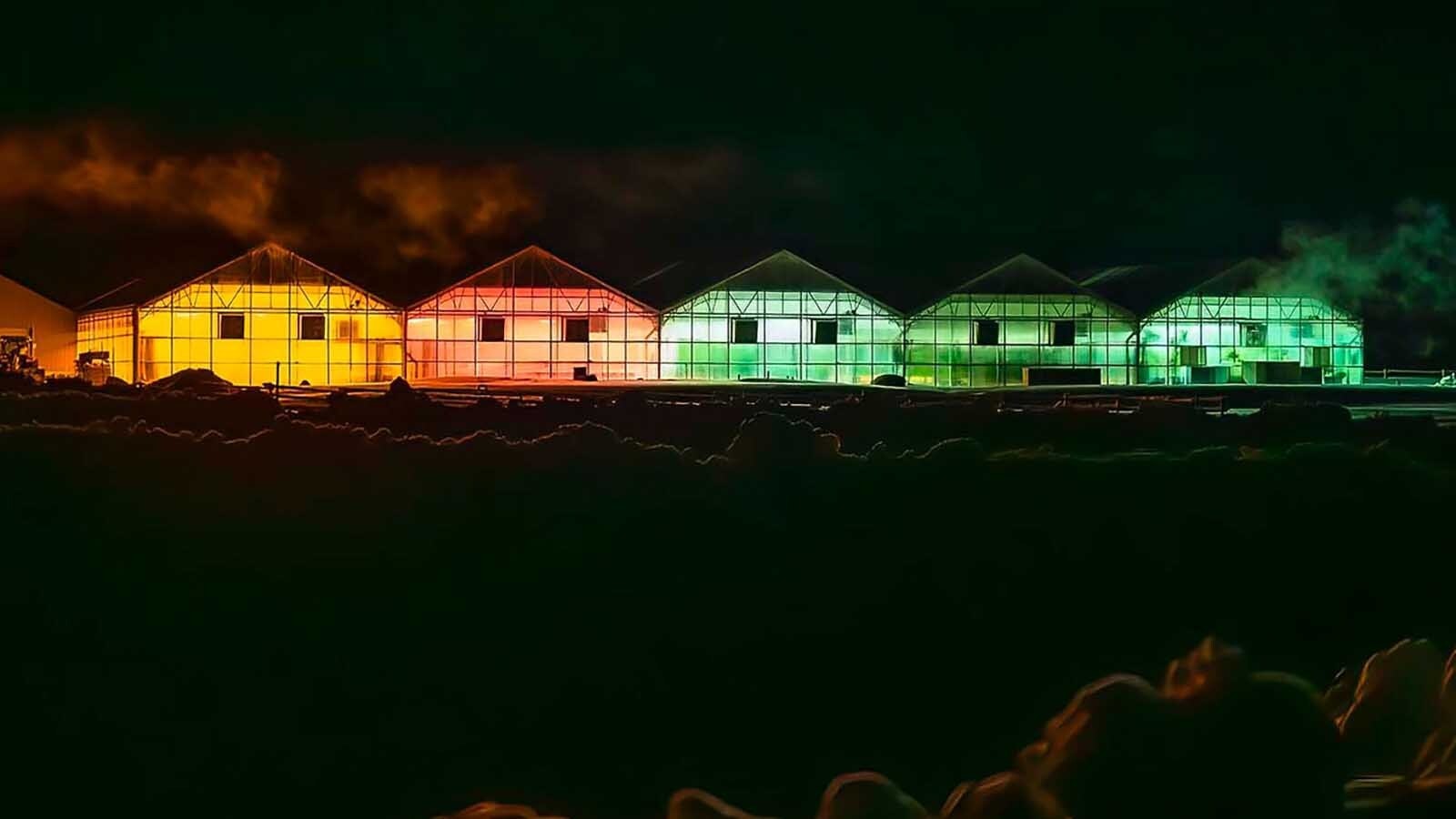A new four-part docuseries examining the threats facing the Greater Yellowstone Ecosystem premieres Wednesday on Animal Planet, with actor Dennis Quaid hosting an exploration of the priceless wilderness spanning Montana, Wyoming and Idaho.
The series follows the work of researchers studying "the largest remaining temperate ecosystem in North America. It’s a big deal," said Marc Pierce, one of the executive producers on "Saving Yellowstone, with Dennis Quaid." The four-part series includes episodes focused on specific species and conservation challenges.
The series is produced by Warm Springs Productions in Missoula, Montana. Pierce's son Bridger is president of Warm Springs and helped lead production.
“I feel like we were very successful at working with the researchers and in telling that story that there's a lot of people studying all these natural elements and how they all interconnect and working to find the ones that aren't working or the ones that could work better," Bridger told Cowboy State Daily.
Much of the research featured is funded by the Saving Yellowstone Foundation, and one takeaway for Bridger was the way Yellowstone’s impact extends far beyond park boundaries.
“I think a lot of this series just really points to the connectedness in general,” he said. “The ecosystem is the beginning of all these river systems that go all the way to the Gulf of Mexico.”

Beaver Man
Yellowstone's headwaters are home to lots of beavers, an animal Marc Pierce says many Yellowstone visitors overlook.
"Beavers is a great story where most people have no idea the positive impact that beavers have on a landscape and how that affects so many other species," Pierce said. "Those beaver ponds benefit fish and ungulates and birds and native plant species."
For that story, Warm Springs licensed footage from Jeff Hogan, a wildlife cinematographer based in Kelly, who has spent years documenting beaver behavior.
Hogan's beaver expertise traces back to a David Attenborough production.
"'Life of Mammals' with David Attenborough. I had such a successful shoot on that, that then we ended up making it a beaver movie," Hogan told Cowboy State Daily. "And then from there, it's like, I've just become the Beaver Man."
His reputation has brought calls from productions worldwide, and his footage for the new Yellowstone series represents what he called "quite a substantial set" of footage, but he doesn’t know what landed in the final cut.
Hogan recalled dreaming up a method to capture underwater footage that had eluded other cinematographers.
"Everybody was like, can you get in the water and just swim with them and film them? And that's the one thing I've never been able to do," Hogan explained. The beavers don't tolerate human swimmers, and movement stirs up fine silt on pond bottoms.
His solution cost three dollars.
"I came up with my own little idea of strapping a little boat behind a stick that the beavers had chewed off of a cottonwood tree. And below this little boat, I have a GoPro," Hogan said. "And so when the beaver grabbed this to swim with it and bring it to its food cache, he towed my GoPro along behind him. And it really appears as if you're following the beaver."
The vessel? "It's just a little toy plastic boat, $3 sailboat. I broke the mast off of it. It was a little catamaran."
Living adjacent to beaver habitat in Kelly allows Hogan to capture rare behaviors.
"That's really key — to be kind of living with the animal and then just keeping an eye on its daily activities. And when something pops up that is unique and valuable, I jump on it."

Finding the Right Host
When producers sought a host for the series, they wanted someone with genuine ties to the region.
"We had funding and had an idea for the project but wanted to find someone who not only would bring some celebrity name brand value to it, but also someone that had a genuine and organic passion for the subject matter," Marc Pierce explained. "And his name was at the top of our list."
Quaid lived in Paradise Valley for years while married to Meg Ryan, raising their children on a ranch there.
"We approached his agent, and they brought it to him, and he was like, 'Oh yeah, I'm all over it. I mean, that place is near and dear to me,'" Pierce said.
Quaid attended a gathering in Bondurant hosted by Ricketts this past summer that featured some of the same researchers spotlighted in the series.
"Warm Springs is the producer, Osmosis is the distributor. And then the Saving Yellowstone Foundation is where the funding came from,” said Pierce, thanking philanthropist Joe Ricketts for his support.
"He's just got a huge heart for this — the subject matter, the conservation in the Greater Yellowstone Ecosystem, not just the park, but the whole ecosystem," Pierce said.
Jessica Jaubert with Three Elephant Public Relations in Jackson represents Ricketts. She told Cowboy State Daily Ricketts is funding research into the lesser-known wonders of Yellowstone, like the relationship between squirrel middens and other species like deer and fox.
"They are actually keeping multiple species thriving through these big caches," said Jaubert.
Jaubert described the Saving Yellowstone Foundation as, "A hub where scientists, GYE landowners, and government agencies can work together on conserving the Yellowstone Ecosystem with sustainable, scalable initiatives."
She also noted that over the past four years, Joe Ricketts’ Jackson Fork Ranch has funded research programs at the University of Wyoming, University of Montana and University of Idaho. Those projects have centered on the Yellowstone Ecosystem, focusing on the interrelationship of life in the GYE.
"They're studying things like how beaver habitats improve the life quality of moose. For instance, moose don't sweat. And so beavers and damming up waterways actually help moose cool down in the summer months."

Montana Made
Marc Pierce's path from teenage entrepreneur to television executive includes big hits like History Channel’s “Mountain Men” and “Yellowstone to Yosemite with Kevin Costner,” which aired earlier this year on Fox Nation.
After selling a collectible breweriana business as a teenager in Illinois, Pierce moved west to attend Montana State University.
He built up Big Sky Carvers in Manhattan, Montana, selling outdoor-themed home décor.
Pierce then pivoted to television as an outdoor show host before launching Warm Springs Productions in Missoula in 2008 with partner Chris Richardson.
Warm Springs — affectionately named after the state mental hospital — has produced over 40 series totaling nearly 2,000 hours of television for networks including History Channel, Discovery, HGTV and National Geographic.
With “Saving Yellowstone,” Pierce is combining his roles as co-founder of both Warm Springs Productions and the distribution company Osmosis.
"The body of the show is the researchers," Pierce told Cowboy State Daily. He singled out wolf biologist Doug Smith as central to the series.
"An absolute legend when it comes to Yellowstone conservation efforts. He's kind of the in-field host,” explained Pierce.
A second season of “Saving Yellowstone, with Dennis Quaid” is already in production, with four additional episodes planned.
Pierce said distribution will expand beyond the cable dial: "It premieres on Animal Planet, but then it'll also soon be released on the Discovery Channel and on the HBO Max streaming service."
Osmosis has also secured international distribution deals in Canada through Paramount+, Norway via TV2, and Australia through SBS.
Chris Grant of Osmosis told “Variety” the project represents a new model for unscripted television.
"In the unscripted space, there's an opportunity to work with premium talent on ideas and concepts that are near and dear to their hearts. What are they interested in, and how can you marry that in creating content? That's what we did with 'Saving Yellowstone,'” he said.
“Parade” magazine noted the 71-year-old Quaid's latest effort "sees him raising awareness" about this critical American landscape.
With Quaid narrating, the series trailer captures the scope of what's at stake: wild lands spanning three states, connected by 14 different mountain ranges and four major rivers that feed life across the nation.
"Iconic wildlife, big and small — each play a vital role to sustain this ecosystem," says Quaid. "But this vital land faces threats from every direction."
He then delivers a call to action directly to camera: "Now is not the time to give up. It's time to fight."
"Saving Yellowstone, with Dennis Quaid" premieres Wednesday, Nov. 26, at 9 p.m. EST on Animal Planet, with episodes also available through Discovery and streaming platforms including DirecTV and Philo.
Contact David Madison at david@cowboystatedaily.com

David Madison can be reached at david@cowboystatedaily.com.






